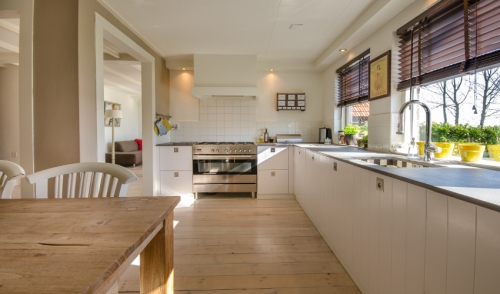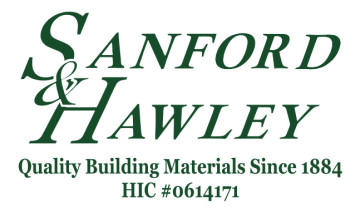
The Kitchens Of The Future Aren't Just About Tech
Designer Michael Schluetter says that while smart kitchens will continue to rise in popularity, a beautiful kitchen doesn't have to be large or expensive.
U.S. kitchen design has changed drastically in recent years, says designer Michael Schluetter, toward simple and clean materials and away from decorative elements.
"A decade ago, high gloss lacquers and exotic veneers such as makassar or Indian apple were all the rage," he says. "The design language in the last two years has changed to using matte surfaces such as ultra-matte laminates and matte lacquers as well as rough finished wood veneers and solid woods such as wild oak, walnut, refurbished driftwoods or core ash."
Here, appliance manufacturer Liebherr offers this Q+A with Schluetter, who is co-founder of Schwarzmann European Kitchens in West Palm Beach, Fla. He explores rising trends, such as mixing materials and designing for various generations of homeowners, as well as the role appliance selection plays in the design process.
Is a “smart/connected kitchen” necessary in today’s modern homes?Yes and no, depending on how we manage our food and storage needs. Connecting multiple appliances, such as cooktops with range hoods and ovens, brings a practical automatic control that can adjust seamlessly while cooking serving. Managing one's appliances remotely also comes in very handy when we leave our homes for work or extended travel.
Designers welcome each new development in technology and would like to see more appliances being able to connect to one single control application. At the same time it is also important to keep appliances practical and simple to use so guests and all family members can use the kitchen easily.
How are baby boomers changing kitchen design?Not only is it important to optimize bathrooms, stairs, storage spaces, and bedrooms to be accessible for wheelchairs and other mobility aids, the kitchen plays the most critical role in this equation as the heart of the house and the center of communication in the home. Clients need to be made aware of their choices such as selecting the right working height for counters, considering a raised dishwasher and oven, smart storage such as extra deep pull-out drawers, and the use of under-counter refrigeration options.
What about millennials?Millennials enter the market with many ideas that are very different from other generations. Highly influenced by extensive traveling and communicating, their opened-mindedness to new technologies and design is refreshing and bold. They appreciate the design process and like to develop their own ideas and material combinations.
What are your thoughts on mixing materials in the kitchen? Mixing materials is a great way to create a vivid design that takes off the edge of just using a single material. A much more comfortable living environment can be created by mixing a solid color material with a warm wood such as a solid oak with a light gray. This enables for stark contrast designs such as black doors and drawers mixed with a natural core ash veneer that create a more dramatic and interesting feeling.
For people on a budget, what are small updates that can make a big difference in kitchen design?For a small budget, our recommendation is to use materials like a European laminate with laser sealed edges that closely resemble lacquer, but at a fraction of the cost. It's also smart work with textured wood design laminates that look very similar to solid wood but are also much more affordable. A new clean countertop out of engineered quartz in a matte finish can also make a huge difference on a small budget.
Do you think paneled appliances will eventually replace the stainless-steel trend? Yes. We already see our designs progressing into a fully integrated look as homeowners are adding more appliances to their homes—not only in the kitchen but also in bars, coffee stations, outside, and in the wine room. A seamless fit also allows the usage of multiple refrigeration units next to each other and offer a great freedom to combine different sizes and types next to each other.
